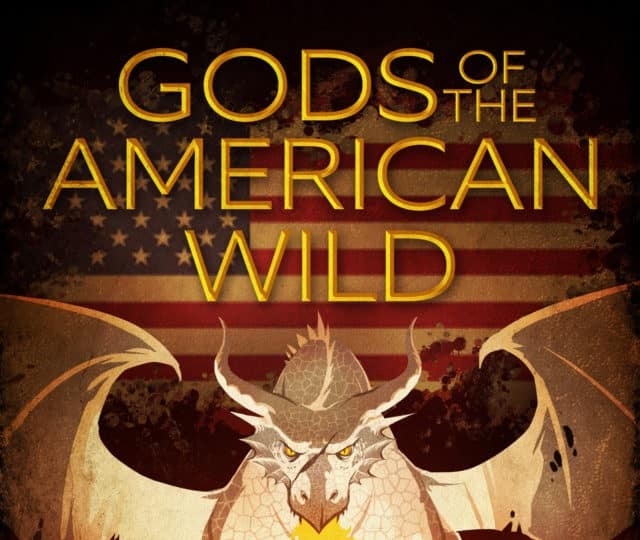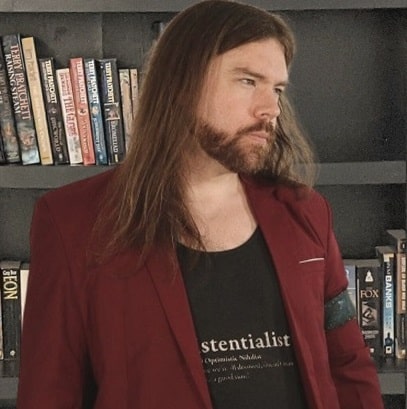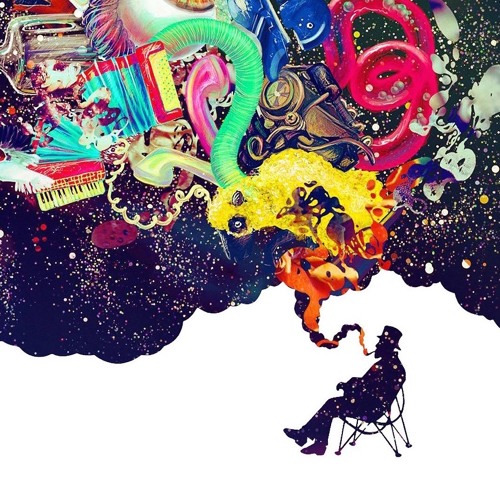Gods of the American Wild: Criticism Takeaways
As you may know, I published my first novel, Gods of the American Wild, back in April. I think it was an incredibly strong first effort and I’m very proud of it. I love the characters, the story overall, and the parable format of the book. The sales were alright, not as high as I’d hoped, and the reviews weren’t that many but they were universally positive which is encouraging. That said, it’s been several months, and I’ve had time to receive criticism and internalize it. So here’s what I’ve learned to inform the next book.
“Cinematic Style”
A lot of people described my book as “reading like a movie”. In writerly terms, this is because I chose to write the book in a 3rd person limited perspective, so there’s not a lot of internal monologue, omniscient descriptions of people’s emotional state, etc, and each chapter is written, essentially, from a particular character’s perspective. Most passages are describing what is observable to the POV character of the chapter. This wasn’t necessarily a ‘criticism’ exactly. Most people didn’t make this statement in a positive or negative sense, but many, many readers noted this. In the future, I do want to pull this back a bit as I refine my style. It’s just a personal choice — after thinking about it, I’d like the narrator to have a stronger voice.
Length
This is something a few people brought up, but something I was self-critical about as well. I think the length of the book (373 pages) could have been condensed to about ~340 pages and still achieved all the points I wanted to achieve. If I’m being honest with myself, it’s because once I finished and edited, there were sections of the book I thought were too long and slightly dragged, but cutting them would force me to rewrite huge swaths of other areas of the book to make it work. Shamefully, I took the lazy way out in that respect. Specifically, I think a lot of the initial buildup to the first meeting between Kai and Eastwood could have been drastically condensed.
Ryu, Not Ken
It’s difficult to articulate this point perfectly well without an analogy, but when it comes to style, I love work that bleeds style. Things like Quentin Tarantino movies, Persona 5, paintings like Vladimir Kush — I think the book, while succeeding in a lot of respects, didn’t succeed in this one. The analogy I’d make is that the book has the personality of Ryu from Street Fighter, as opposed to Ken. Ryu — disciplined, serious, standard. Ken — flashy, stylish, energetic. Certainly it has edgy scenes. A character rips someone’s spine out, there are dragons, Rhys runs around exploding people, Apache’s wife very graphically cheats on him, but overall the vibe of the book is Ryu’s uppercut; it’s plain, strong and it gets the job done, but it doesn’t have the pizzazz or style of Ken’s flaming shoryuken.
Underused Sci-Fi Elements
The whole book takes place in a near future of technological advancement that’s supposed to be similar to Minority Report or, more recently, Upgrade. Self-driving cars, AI-infusion, etc. Some of this comes through in the book, but not to the degree I would have liked. I think the issue here is that so much of The Dragon 2043 was focused on the dragon and not enough on the 2043. In other words, I spent a lot more time on characters, philosophy, etc, and less on world-building. Part of the reason it’s subdued is that my interpretation of a lot of sci-fi is it goes way too far — Back to the Future thought we’d have flying cars in the year 2000, for instance. So I didn’t want life to seem to have been drastically changed by the technology. I still agree with that, but I think I reeled it in too much, and as the series continues I should be more aggressive with the inclusion of technology.
Calling it a “Superhero Novel”
This is what I called it in my head because part of the base inspiration for the book was to be in a genre similar to the TV shows Heroes or Misfits, but what I realized when I put it out and began marketing it was that this wasn’t exactly right. It didn’t have the same tropes as most superhero novels — there are no costumes, no superhero teams exactly, and when readers who weren’t exposed to that messaging read it, they simply thought it was an action fantasy novel. Though there’s definitely a lot of inspiration from superheroes. For instance, I created the characters by doing this really esoteric exercise where I compared popular superheroes to corollaries in Greek mythology and then traced those archetypes along major American history and pop culture figures (that’s how I ended up with heroes named things like “Eastwood”, “Rockwell” and “Wicken” — originally “Salem” and then “Wiccan” before ultimately becoming “Wicken”). But then again, there’s a lot of DNA in this thing, it’s quite philosophical, it has dragons, magic, all sorts of weird things. To be honest, I’m not sure how to categorize it — I think it will become more clear as I write more books and the audience’s feedback helps me out.
Don’t Record an Audiobook
On the one hand, recording an audiobook was nice because it helped me catch a lot of typos. On the other hand, the audiobook didn’t even come out because despite my best efforts, the room noise in my apartment caused it to be rejected by ACX. It took a long time — almost as long as writing the book itself. It killed my throat, and though recording the audio was kind of enjoyable, editing it was perhaps the most tedious, grueling thing I’ve ever done in my life. If I choose to do an audiobook in the future, I’ll leave that to someone else.
So those are some of the many takeaways from my first novel that I have in mind as I continue to write. Cheers.





